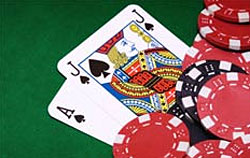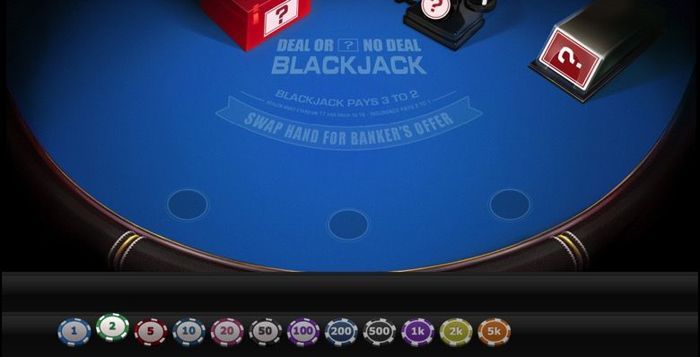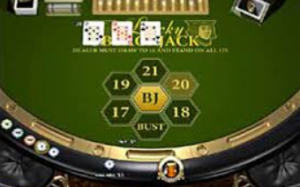Wizard Recommends
Spanish 21, or as our friends down under like to call it – Pontoon; is a version of Blackjack that is not only fun to play, but one of the best bets in a casino. If you are lucky enough to find the game that is. Spanish Blackjack isn’t spread as often as other Blackjack games due to the low house edge. As a rule of thumb, if you have the option to play Spanish 21, play it! The ownership of Spanish 21 is held by Masque Publishing Inc. Which is a company, based in Colorado. This version is also commonly known as Spanish Blackjack even though this name is not an official one and it resembles another very popular variation of the classic game – the Malaysian Pontoon. Rules of Spanish 21.
- €1500 Welcome Bonus
- €100 + 300 Free Spins
- 100% Welcome Bonus
Good question. Yes, this house edge is definitely low enough to consider card counting. Since most card counters don’t even consider Spanish 21 I think the field is ripe to exploit the game and to do so with a great deal of impunity. However counting may not be as effective in Spanish 21 as regular blackjack. A small card rich deck will benefit the player in more multiple card 21’s. To the best of my knowledge nobody has developed index numbers for Spanish 21 but somebody should. Maybe I will.

Casino Player reversed the two charts in their layout. I'm very embarrassed by this mistake. Yes, you should hit a hard 17 against an ace if you can't surrender.
In a 6-deck game the probability of a super bonus is 1 in 668382, and in an 8-deck game it is 1 in 549188. The house edge without the super bonus would be 0.03% more either way.
Spanish 21! Under Atlantic City rules blackjack has a house edge of 0.43% and Spanish 21 of .40%.
The Venetian. To the best of my knowledge they are the only casino in Las Vegas which stands on a soft 17 in Spanish 21, lowering the house edge from 0.76% to 0.40%.
Update: The Venetian later switched to hitting a soft 17. As of this update (May 14, 2013) the best Spanish 21 game is at the D, which allows re-doubling.
All Unified Gaming casinos as well as Global Player offer Spanish 21. Unified Gaming stands on a soft 17 and thus has the lower house edge.
2013 Update: Unified Gaming software has since disappeared. As far as I know, nobody offers Spanish 21 online any longer.
Thanks for the compliment. The Spanish 21 rules are the same across Atlantic City. I only know of two that have the game, the Tropicana and the Claridge, but there could be others by now. If I'm not mistaken, the best craps game is at the Sands, which offers 5X odds. When I say to take the maximum odds I mean bet the maximum allowed on the odds. For example, $50 after a $10 line bet. Keep in mind that you won't win more money by taking the odds, you just get to bet more without losing more in the long run.
I always liked the name Thunder Bay for a city. I used to work at a summer camp not too far from there in Missanabie, Ontario. To answer your question 6 decks is better than 8. However the difference in the house edge is small, only about 0.03%.
With reference to the first table of the Basic Strategy for Spanish 21, I have some questions that I hope you could clarify for me (standard game, dealer hits s17):Q1. For 17 v A (your reference - Rh). If the player doesn’t surrender (or double down surrender), does he in fact hit? I ask this question because I’m a little unsure - Scoblete’s book says to stand 17 v A, as does Norm Wattenberger’s Spanish 21 strategy table in CVBJ3.
Blackjack Odds Card
Q2. Your references to the 6-7-8 bonuses. Do all the references apply equally to the 7-7-7 bonuses? e.g. Does * mean 'Hit if any 6-7-8 [OR 7-7-7] bonus possible'?
Q3. p20 of Scoblete’s Spanish 21 book says to hit 9 v 6 if player has a 3 card 9. Should I ignore this advice, along with the 'don’t double down rescue' advice given in his book?
Sorry to bother you with these questions but I’ve got a Spanish 21 tournament coming up, and need all the help I can get. Many thanks.
- Yes, you should hit. I believe all those who disagree to be in error.
- No, the 7-7-7 bonus is only possible with two initial sevens. The proper strategy is indicated in that row.
- Yes, you should ignore this advice.
I get verbally abused too when I play Spanish 21. When I lived in Baltimore I played it a lot in Atlantic City because the house edge is lower than blackjack there. These idiots doing the abusing don’t understand that removing the tens from the decks makes hitting less dangerous because the probability of busting is less. Don’t bother to try to explain this, the logic won’t make it through their thick skulls. I used to just bite my tongue in these situations but the next time I may not be so nice.
There was discussion about this at www.bj21.com under the Green Chip section about a couple years ago. As I recall the consensus was that counting was not as advantageous as in blackjack but you could get away with a lot more. I know of no published material on this.
Most redoubling situations tell you to double anyway. However, with a soft 15 to 17 against a 3, when the strategy says hit, you should actually redouble.
Thanks. This game is just a rip-off of Spanish 21. Note that the bottom of the card says that all queens are removed.
Keeping all the tens in the deck is worth 1.89% to the player. The house edge under those rules is normally 0.40%. So with all the tens in the shoe, the player edge would be 1.89%-0.40% = 1.49%.
I don’t like it when games give worse odds to the higher bettors either. The value of these Super Bonuses is almost zero. The probability of hitting the Super Bonus is one in 549,000 with eight decks, and one in 668,000 million with six decks. Assuming six decks, the value of the envy bonus is worth 0.0015% per additional player, besides yourself. Sorry, I don’t know of any casinos that sweeten the bonuses for larger bets.
I really enjoy your site, and thank you for the pertinent information! Reading and learning has erased my bad habits and made me a better player, I am certain! Here is my question. I read about games you write about and really think that some of them would be fun to try, like the World Series of Poker (Final Table Bonus) video poker game.Not knowing, however, where to find it, and others, I usually wind up writing to the maker of the game at their website and asking where I can find their game outside of Nevada, since I am in the Midwest. I NEVER get an answer! Besides being just bad customer service, I still have the question of finding the game to be answered. Do you know of a site, or a way, to find which specific games are at which casinos? You would think the game’s manufacturer would list where to find it to assist in letting players find the game.
Thanks for the kind words. I think the gaming manufacturers should take this as a good suggestion. I get requested for this information by players all the time, but it is simply too much for one person to keep on top of. A noteworthy exception is Masque Publishing, the owners of Spanish 21. They keep an online list of where the liberal Spanish 21 rules can be found.
What are the pros and cons of roulette versus the pros and cons of blackjack? How do these games differ, and how are they the same? Like all casino games, they have certain characteristics that hold true for every game you’ll play in a casino. But they also have significant differences, which I’ll analyze for you on this page.
Independent Events versus Deck Composition Strategies
The odds in roulette never change, no matter what happens on previous bets. If you bet on black, the odds are always either 18/38 or 18/37 that you’ll win. That’s because every spin of a roulette wheel is an independent event. Previous results don’t affect the odds on subsequent results.
This doesn’t mean that roulette gamblers understand this. Many of them stubbornly refuse to acknowledge the simple fact that it’s impossible to get an edge on roulette based on studying the results of previous spins. Martingale players take this to a systematic extreme by lowering and raising their wagers based on what happened on the last spin.
Imagine though a new roulette wheel, one in which certain numbers got filled in once they’d been hit. The odds would change with every spin of the wheel, right? For example, there are 18 black numbers, so the odds of winning a bet on black are 18/38. If you removed one of the black numbers after black hit, the odds of winning the same bet would be reduced to 17/38.
It doesn’t take a math genius to understand how you could use this information to your advantage.
But that’s exactly what happens with a blackjack deck. Once a card is dealt, it’s gone, and the composition of the deck has changed. This is how card counters make money. They use a heuristic system to estimate how favorable the deck is to the player.
Some might have trouble getting their head around this idea, but it becomes simpler if you think of it this way. You get paid out 3 to 2 if you hit a natural “21” right? All other bets pay out at even money, so getting a natural blackjack is where a blackjack player makes his money.
But what are your odds of being dealt a blackjack if all four of the aces in the deck have already been dealt? They become 0, right? If the deck has 0 aces in it, and you need an ace and a face or ten to get the 3 to 2 payout, then the house edge increases considerably.
The same holds true for the tens, but there are more of them in a deck. And the reverse of this is true. As the lower cards are dealt, the ratio of tens and aces becomes more favorable. So the card counter raises his bet sizes to take advantage of the higher chance of getting a bigger payout.


Strategy versus Pure Chance
Another aspect of blackjack that’s different from roulette is the ability for the player to affect the house edge by making smart decisions. (The house edge is the percentage of each wager that the casino expects to win over the long run.)
In roulette, the house edge is fixed, regardless of what decisions you make. On an American wheel, you face a house edge of 5.26%. On a European wheel, you face a house edge of 2.70%. No decisions that you make can change this number.
On the other hand, there are multiple decision points in a blackjack hand. You could increase the house edge to 100% by hitting every hand until you bust, for example. (Most players are smarter than that, though.)
Smart blackjack players use something called “basic strategy” to make their decisions. Basic strategy provides the mathematically best play in every situation that might come up. It’s generally easy to memorize.
The difference between using basic strategy and just playing your hunches is significant. Game conditions vary, but generally speaking, if you use correct basic strategy, you can reduce the house edge to between 0.5% and 1%. Players who don’t know basic strategy face a house edge of 4% to 5%.
If you like making decisions that affect your outcome, and you want to play a game where you can get edge by an advantage maneuver like counting cards, skip the roulette table. Play blackjack instead.
On the other hand, if that sounds like too much trouble, roulette can be a lot of fun. It’s not a sucker bet, no matter what anyone tells you–unless you buy into some loony roulette system or superstition.
Wagers per Hour
Another difference that has a practical effect on a player is how many wagers per hour happen at the table in the two games. You can estimate how much money you’ll expect to lose per hour if you multiply the size of your wager by the house edge and multiplying that by the number of wagers you make per hour.
Roulette is a relatively leisurely game. If you’re playing at a table with five other players, you’re only going to be seeing 35 spins per hour. If you only place a single wager per spin, you can easily estimate your average hourly loss.
Suppose you’re betting $5 a spin. The house edge is 5.26%. So you can expect to lose about 26.3 cents per spin. You can expect to lose a little over $9 per hour at that rate.
Of course, with fewer players at the roulette table, you can expect to see more wagers per hour. If it’s just you and the dealer, for example, you can expect to see 100 or so spins per hour, which will triple your expected hourly loss.
Blackjack is a faster-paced game. If you’re playing blackjack at a table with 5 other players, you can expect to see 60 hands per hour. If you’re playing with perfect basic strategy (1% house edge) at $5 per hand, you can expect to lose a nickel per hand. That’s just $3 per hour. Even though you’re putting almost twice the money into action per hour, your entertainment is costing you even less.
Does that make blackjack better than roulette? That depends on your personality. Do you like a leisurely, elegant game? Do you prefer not to have to think too much when gambling? Then roulette is better than roulette—for you.
On the other hand, if you like card games and enjoy the challenge of making correct decisions, blackjack is more likely to be suited to your personality.
The pros and cons of each game are all based on what you prefer as a gambler.